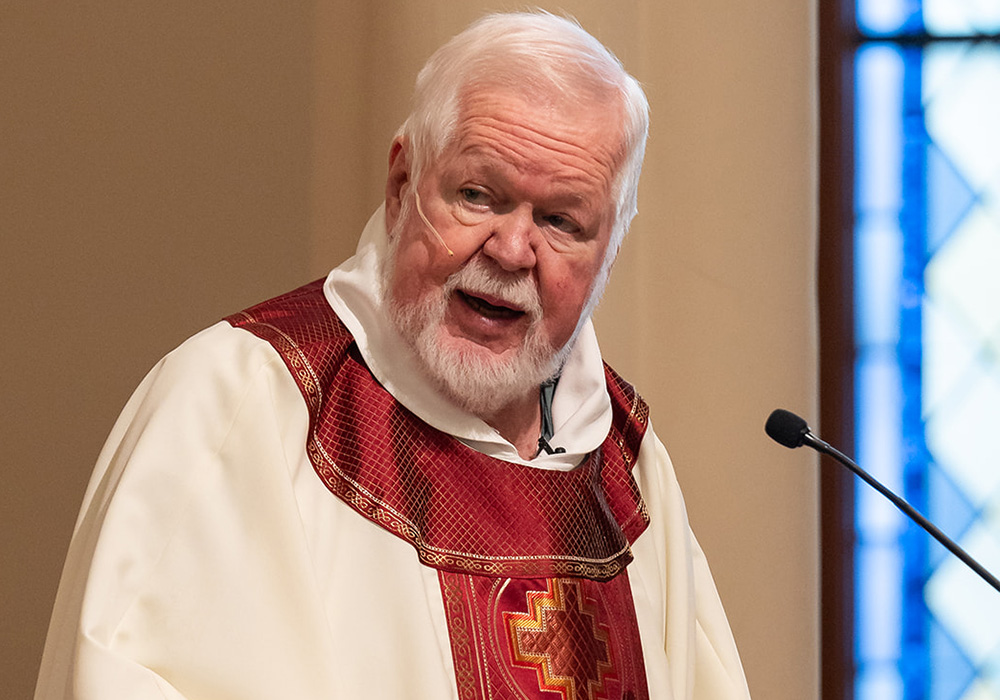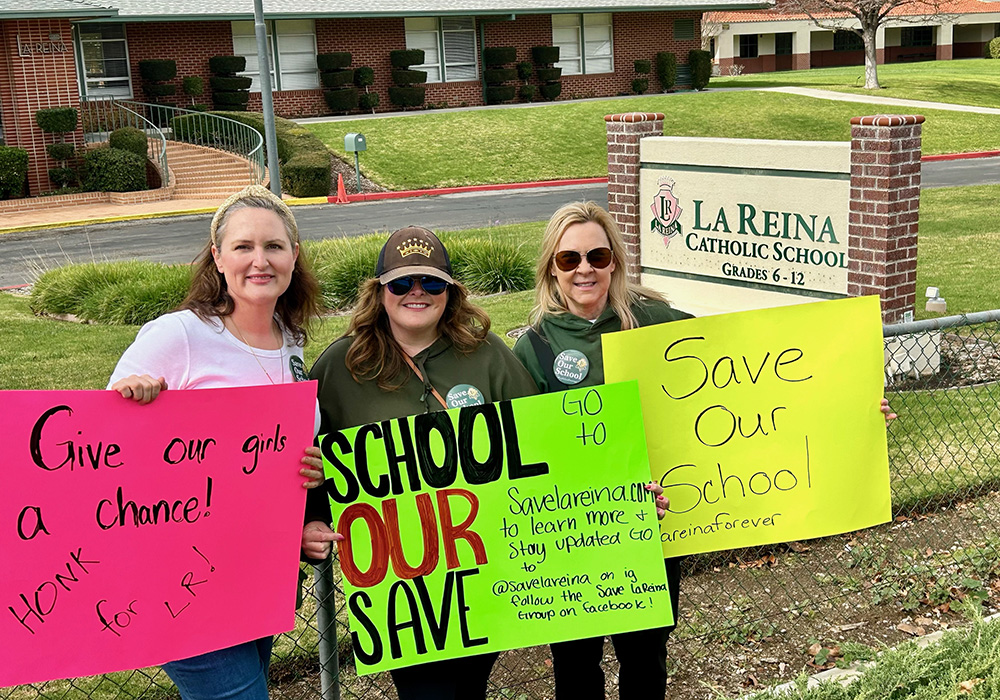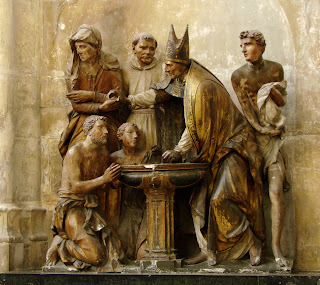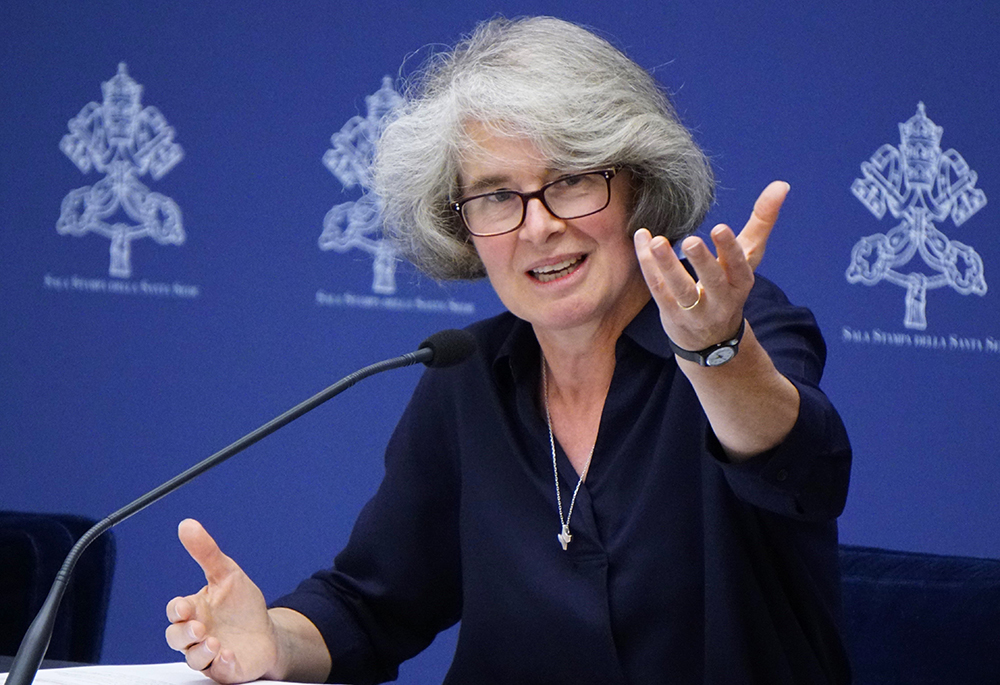
Atlanta’s progressive Catholic community has been celebrating the memory of Msgr. Henry Gracz, an archdiocesan priest who championed the inclusion of Catholics of all stripes at downtown Atlanta’s Shrine of the Immaculate Conception.
Gracz, 84, who died Feb. 5 after a long battle with kidney cancer that metastasized, was often lambasted by right-wing Catholic media, including Church Militant, for his steadfast welcoming of LGBTQ people into the shrine’s pews. Progressive Catholics praised Gracz for being « ahead of his time » for his courage in taking a leading role to push back against homophobia among Catholics.
In addition to being an open and affirming parish, the shrine is known for its ministry to those in need, including a daily offering of sandwiches and snacks each weekday.
Antonio Alonso, the Aquinas Assistant Professor of Theology and Culture, and director of Catholic Studies at Emory University’s Candler School of Theology, told NCR that Gracz was a national leader who lived both compassionately and prophetically.
« I think he was ahead of his time in the United States, let alone in the South, » said Alonso, who said he recommends the shrine to his Catholic students.
« We have a significant population of LGBTQ students at Candler, » said Alonso. « We’ve had an open, ecumenical environment so Catholics can feel free to be themselves. Every time a student asked me where is a safe place to be in the Catholic community in Atlanta, my unequivocal answer is always ‘the shrine.’ «
Alonso said most of the extended Catholic community at Candler are members of the shrine where « our students find unconditional love. »
In an op-ed published in The Atlanta Journal-Constitution, shrine parishioner Jaye Watson, wrote about her first time attending Mass there. She said she « was struck by a feeling, one I still struggle to describe. The only thing I can come up with sounds trite but it’s true — ‘love lives here.’ «
« To me, Father Henry is what you get when love is manifested in human form, » she wrote. « The love he gave so freely changed countless lives and hearts. »
Church Militant, LifeSiteNews and other conservative Catholic websites often criticized Gracz, many times in the same posts that also criticized or mentioned former Atlanta Archbishop Wilton Gregory and outspoken Jesuit priest and author Fr. James Martin, both advocates for the inclusion of the LGBTQ community in the life of the church.
Gregory, who served as Archbishop of the Archdiocese of Atlanta from 2005 through 2019, before being appointed to lead the Archdiocese of Washington, D.C., will be concelebrating at Gracz’s funeral at the shrine with current Atlanta Archbishop Gregory John Hartmayer, who is also supportive of the shrine’s efforts to be inclusive.
In an emailed statement to NCR, Gregory wrote:
During my nearly 15 years as Archbishop of Atlanta, I came to have a high regard for the pastoral compassion and dedication of Msgr. Gracz. He served everyone with a kindness that easily won their hearts and trust. His ministry at the Shrine of the Immaculate Conception gave the Catholic Church an image that Pope Francis has urged all clerics to display.
Advertisement
In another email to NCR, former Shrine parishioner Cullen Larson, the retired Southeast regional director of Catholic Relief Services, wrote of Gracz:
He was the embodiment of pastoral ministry. His parish included and welcomed everyone in the area and their needs, not only the Catholic members. The Eucharist that he led was a verb, nurturing and sending us all to make real the presence of Christ everywhere. His preaching was a witness of faith; the liturgy he led was truly a work of the people. He lived solidarity toward justice.
The shrine’s director of music ministries, Dónal Noonan, told NCR the welcoming and unconditionally loving shrine community that Gracz nurtured was often the place where people on the verge of leaving the church found a home.
« It was your last stop before you became Episcopalian or you left the church all together, » Noonan said. « The shrine was a place of welcome before Henry. He just built on that and flung open the doors. »
Gracz and the shrine also hosted the Atlanta group « Fortunate and Faithful Families, » which supports families with LGBTQ members.
Leigh Holbrook, who is gay, told NCR a story of meeting Gracz at a time when she was considering leaving the Catholic Church because of the pain she felt over the church’s treatment of LGBTQ persons.
« He found me in a crisis of faith when I was in the back of the church, » Holbrook told NCR. « At the shrine I was welcomed and loved no matter who I was. There was never anything but love from Father Henry. »
Holbrook said Gracz told her she was loved by God « exactly as you are, and then he asked me to be a lector at daily Mass. »
Giving her something to do made her feel « part of the community, » Holbrook said. « By giving me something to do he let me know I was needed. »
Holbrook called Gracz « our gentle and spiritual father. He was a blessing to everybody. I don’t think there’s anybody who met him that didn’t feel that way. He was definitely the embodiment of Christ in every way. »
Henry Charles Gracz was born in Buffalo, New York, on Sept. 27, 1939. He graduated from Canisius College, studied theology at Buffalo’s Christ the King Seminary and did graduate work at Fordham University and The Catholic University of America.
Gracz was ordained a priest May 8, 1965, by the late Atlanta Archbishop Paul Hallinan. Gracz lived and ministered in Atlanta for more than half a century.
When Gracz received his cancer diagnosis, he appointed the shrine’s parochial vicar, Fr. Joseph Morris, to take over pastoral duties.
While Gracz kept a smile on his face, he did say it was painful to be criticized for his pastoral work. In 2018, some Atlanta Catholics circulated an online petition asking that Gracz be removed from his appointed role, by Gregory, to be part of a group of spiritual advisers for survivors of sexual abuse, because of Gracz’s ministry to LGBTQ Catholics.
Gracz was quoted in The Georgia Bulletin saying he’d just like to go back to helping people who need him without this distraction. « When you’re in the cause of doing good in the name of the God who you believe in, and people attack you for it, it’s painful, » he said.
Kelly Quindlen has been the shrine’s pastoral coordinator for the last five years. An Atlanta native, Quindlen says her job is multifaceted, but her most important task was to be Gracz’s assistant.
Working with Gracz was educational, Quindlen told NCR. « By watching him ministering to people, I learned how to minister to people, » she said. « He was my friend too. »
When Latinx singer Gina Chavez, who is a queer Catholic, was performing in Atlanta, Quindlen said she invited Gracz, who also was a Chavez fan who loved live music, to come along with her to Chavez’s concert in a small club.
Quindlen said Chavez’s music « is infused with spirituality. Henry loved stuff like that. We bought T-shirts. He was my buddy, and we had fun. »
Quindlen said the last wedding Gracz presided over was that of her sister, Annie, last November.
In a letter to his parishioners on Feb. 1, Gracz wrote to inform them that although he had been able to live with kidney cancer for about ten years, it had spread throughout his body.
« I am sorry to share this news so starkly with you, but I believe that sharing the truth is rooted in love, » he wrote. « You are my family and family deserves to know. »
On the Sunday before he died, Noonan, a native of Ireland, went to visit Gracz. « His face was his normal color, and his beautiful blue eyes were sparkling, » he said.
The day after his visit, Noonan, who was alone at the shrine, received the news that his mentor and friend had died. He decided to ring the church’s bell.
« I rang the bell for two minutes in downtown Atlanta that let the people know that something terrible had happened, » Noonan said, « that the bell was rung for an amazing man. »
Alonso said the decades of wonderful pastoral care exhibited by Gracz will carry on at the shrine.
« Obviously the loss is immense because of the way he led; it was never only about him, » Alonso said. « There’s a community of people ready to continue this work, and that’s a legacy. »
A vigil service will be held Friday, Feb. 23, at 7 p.m., at the Shrine. A funeral Mass and celebration of life will be held on Saturday, Feb. 24, at 11 a.m., at the shrine. Gracz will be interred in the crypt at the shrine immediately following the funeral.








